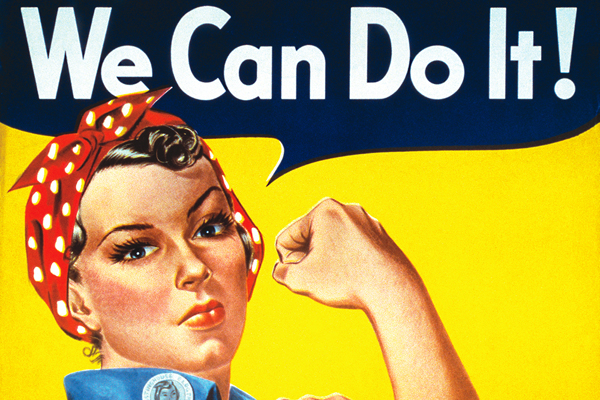Protect and Extend Your Continued Improvement Gains
By Ben Rand

Many manufacturers who undertake Lean and other Continuous Improvement programs see great gains in the near term which often tend to diminish over time. This regression, known as “back sliding,” typically occurs as employees revert to their previous way of doing things. A very effective solution to this problem is TWI (Training Within Industry), a systematic approach to standardized work.
TWI was developed by the U.S. Department of War before World War II in recognition of the fact industry would be losing millions of skilled workers to the military just as their expertise was most needed to ramp- up production. The challenge was how to quickly and effectively train replacements, including women, without missing a beat. Rosie the Riveter and TWI proved up to the task as American industrial might played a major role in winning the war. By 1945, more than 1.6 million workers in more than 16,500 plants had received a TWI certification. After the war, TWI methods were used overseas with great success, particularly in Japan where TWI played an important role in the development and success of both Kaizen and the Toyota Production System.
TWI consists of four training modules which can stand alone, but are most powerful when combined into an integrated program. The first module, Job Instruction (JI), is designed to stabilize your processes by standardizing work. JI is used to instruct operators in how to perform a job correctly, safely and conscientiously. Typically, most manufacturing processes are performed by multiple operators using slightly different methods. JI requires the company to identify and teach the “one best way” thereby creating a standard method. Process stability is created by doing the same thing the same way across operators and shifts. This standard work lays a solid foundation for on-going improvement and results in less scrap and rework, fewer accidents, and increased job satisfaction.
Job Relations (JR) training teaches supervisors how to build positive employee relations, how to handle problems, how to prevent problems from occurring and aids in developing a logical, common sense approach to handling people issues. Developing and maintaining these good relationships prevents problems from arising and helps earn loyalty and cooperation from others. When problems do arise, JR provides a proven method for getting the facts, weighing options, deciding, taking action, and checking results. The core elements of the program are basic consensus building and individual problem solving. JR lays the groundwork upon which you can build the next layer of stability into your processes and results in increased productivity, improved attendance, better morale, and higher employee retention rates.
Job Methods (JM) improves the way jobs are done by building on the skills of the operators and first line leaders such as supervisors. The aim of the program is to produce greater quantities of quality products in less time by making the best use of the people, machines, and materials currently available. This is accomplished by breaking jobs down into their constituent operations. Every detail is questioned in a systematic manner to generate ideas for improvement. New methods are developed by eliminating, combining, rearranging, and simplifying steps in the process. JM will enhance and extend your continuous improvement efforts by delivering a high volume of small incremental improvements resulting in reduced costs, increased productivity, increased throughput and reduced work in process.
Job Safety (JS) is a complementary program to increase environmental health and safety by providing a framework for supervisors to engage employees in identifying potential job hazards and eliminating them. JS was developed in Japan and, although it was not part of the original TWI program, it plays a critical role in industry today. JS gives supervisors a method to analyze the chain of events leading to accidents and hazardous situations. Root causes are identified and remediated to “break the chain”. In JS, the relationship between supervisors and employees plays a pivotal role in creating a safe and environmentally responsible workplace.
Even though you may not be fighting WWII, TWI can still help your company standardize work, institutionalize continuous improvement and maximize profit. Contact us to learn more about how TWI can help your business.

